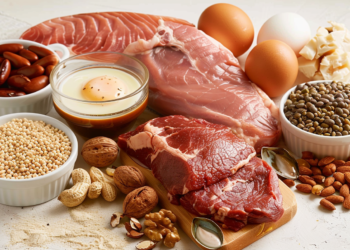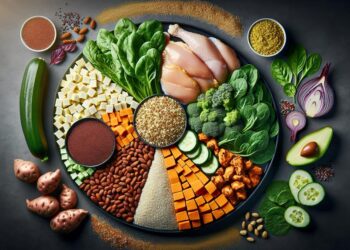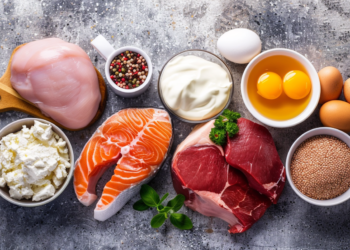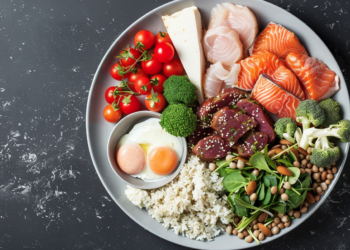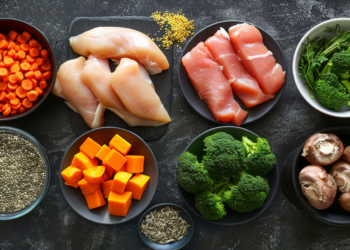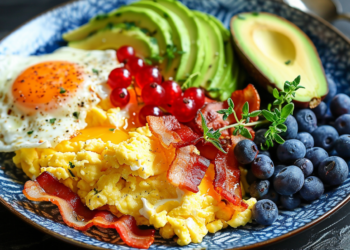When we focus on our nutrition plans for bodybuilding, key vitamins are crucial for our performance and recovery. Vitamin D boosts muscle strength and function. Vitamin C helps reduce soreness and supports our immune system. B vitamins are essential for converting food into energy, while vitamin E combats oxidative stress from intense workouts. Additionally, vitamin A strengthens our immune response, and vitamin K promotes bone health. By incorporating a variety of whole foods into our diet, we can guarantee adequate vitamin intake. There’s much more to explore about effectively utilizing these vitamins in our routines.
Key Takeaways
- Vitamins play a crucial role in enhancing energy levels, muscle recovery, and overall physical performance for bodybuilders.
- Vitamin D supports muscle strength and function, while vitamin C aids in reducing soreness and inflammation post-workout.
- B vitamins are essential for converting food into energy, preventing fatigue, and supporting demanding workout routines.
- Vitamin E acts as an antioxidant, combating oxidative damage from intense training and promoting recovery.
- Whole foods rich in vitamins, along with dietary diversity and strategic timing, optimize nutrition for bodybuilders.
Importance of Vitamins in Bodybuilding
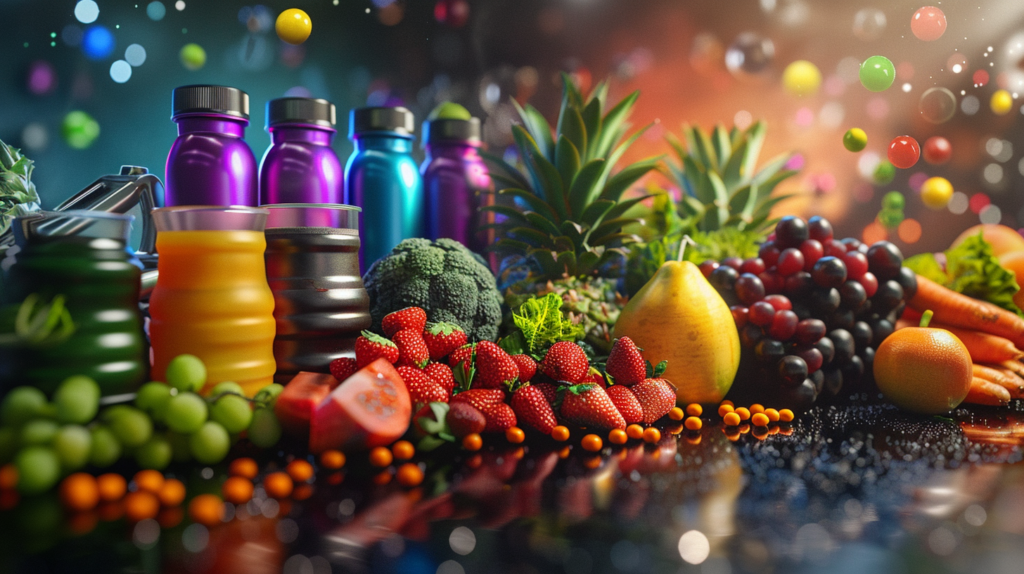
Vitamins play an essential role in supporting our physical performance and recovery as bodybuilders, enhancing energy levels and aiding muscle repair. When we engage in intense training, our bodies require a variety of vitamins to function at their best. Vitamin deficiencies can hinder our progress, leading to fatigue, decreased immunity, and impaired muscle recovery.
To combat these deficiencies, we should consider effective supplementation strategies tailored to our individual needs. For instance, B vitamins are vital for energy metabolism, while vitamins C and E serve as antioxidants, protecting our muscles from oxidative stress. Incorporating a multivitamin can help fill nutritional gaps, ensuring we get the essential nutrients needed for peak performance.
Moreover, we must focus on obtaining vitamins from whole foods like fruits, vegetables, and lean proteins. This holistic approach not only supports our physical goals but also promotes overall well-being. By being proactive in our nutritional choices and understanding the importance of vitamins, we can liberate ourselves from the constraints of poor performance and recovery.
Let’s prioritize our vitamin intake to achieve the strength and endurance we aim for in our bodybuilding journey.
Vitamin D and Muscle Strength

Research shows that vitamin D plays an essential role in enhancing muscle strength and function, making it a key nutrient for bodybuilders looking to optimize their performance.
When we’re training hard, our muscles need adequate vitamin D to contract effectively and recover properly. Studies indicate that higher levels of this vitamin correlate with improved muscle strength, allowing us to lift heavier and perform better.
We can obtain vitamin D from several sources, such as sunlight, fatty fish, fortified foods, and supplements.
However, many of us may experience vitamin D deficiency due to limited sun exposure or dietary restrictions. This deficiency can lead to muscle weakness, increased risk of injuries, and hindered workout progress.
Vitamin C for Recovery
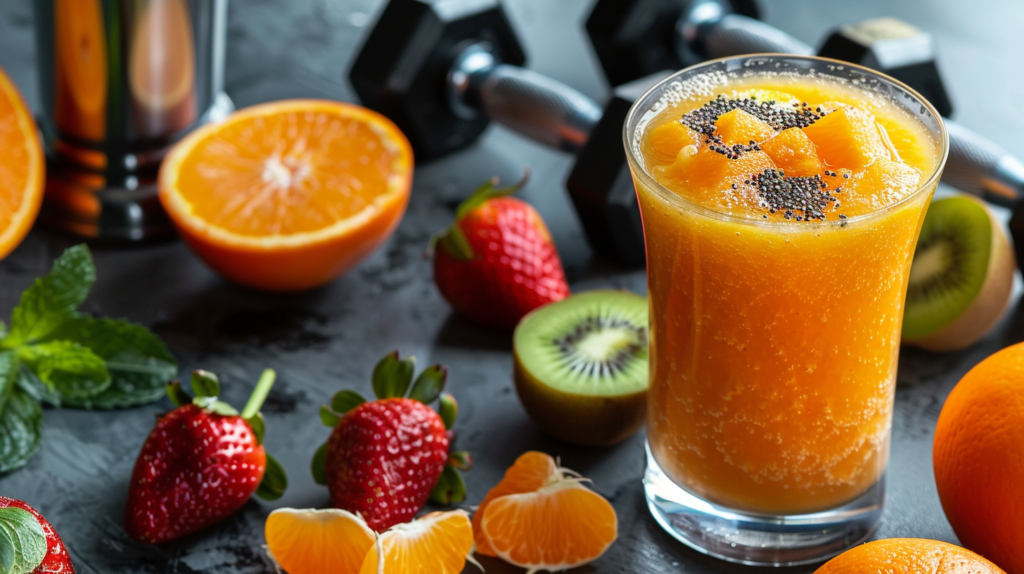
After optimizing our muscle strength with vitamin D, we can further enhance our recovery and overall performance by ensuring we get enough vitamin C in our diet.
Vitamin C plays an essential role in reducing muscle soreness and inflammation, which helps us bounce back faster after intense workouts. This powerful antioxidant not only aids in collagen synthesis—important for maintaining joint and connective tissue health—but also supports our immune system, essential for staying healthy and consistently hitting our training goals.
To reap these vitamin C benefits, we should incorporate various sources into our meals. Fruits like oranges, strawberries, and kiwis are packed with this important nutrient. Vegetables such as bell peppers, broccoli, and spinach are also excellent choices. By including these foods in our nutrition plan, we can greatly boost our vitamin C intake.
Research shows that adequate vitamin C levels can enhance recovery time, allowing us to train harder and more frequently. So, let’s prioritize this vitamin in our diet to support our bodybuilding journey, ensuring we’re not just building muscle, but also empowering our bodies to recover effectively.
B Vitamins for Energy Production
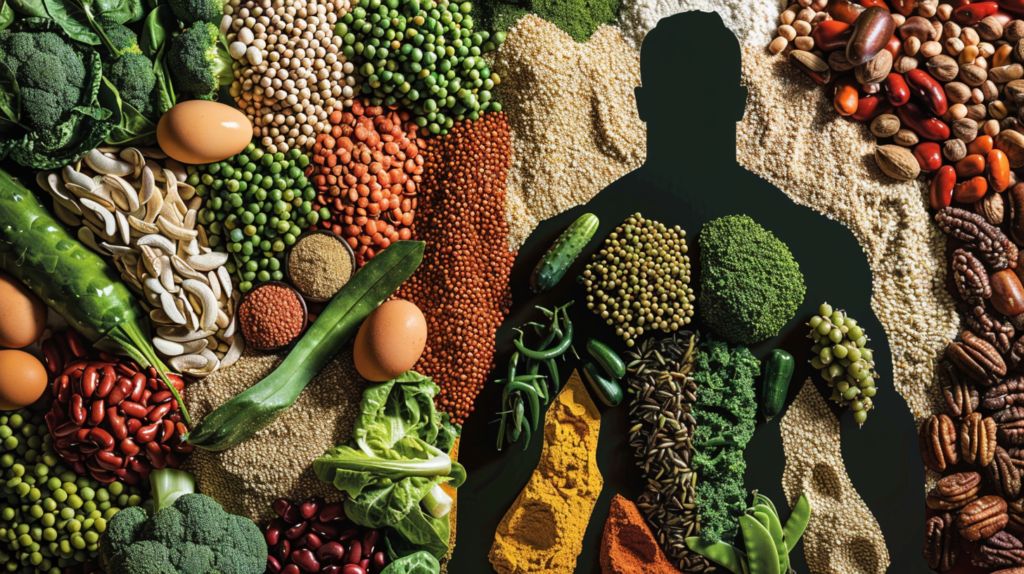
How can we boost our energy levels during workouts?
B vitamins play an important role in converting the food we eat into usable energy, making them crucial for our bodybuilding efforts. These vitamins, particularly B1 (thiamine), B2 (riboflavin), B3 (niacin), B5 (pantothenic acid), B6 (pyridoxine), B7 (biotin), B9 (folate), and B12 (cobalamin), help metabolize carbohydrates, fats, and proteins.
We need to guarantee we’re getting enough B vitamin sources to support our demanding routines. Foods like whole grains, legumes, nuts, seeds, eggs, dairy, and leafy greens are excellent options.
If we’re not consuming a balanced diet, we risk B vitamin deficiencies, which can lead to fatigue, decreased performance, and impaired recovery.
Vitamin E and Antioxidant Support
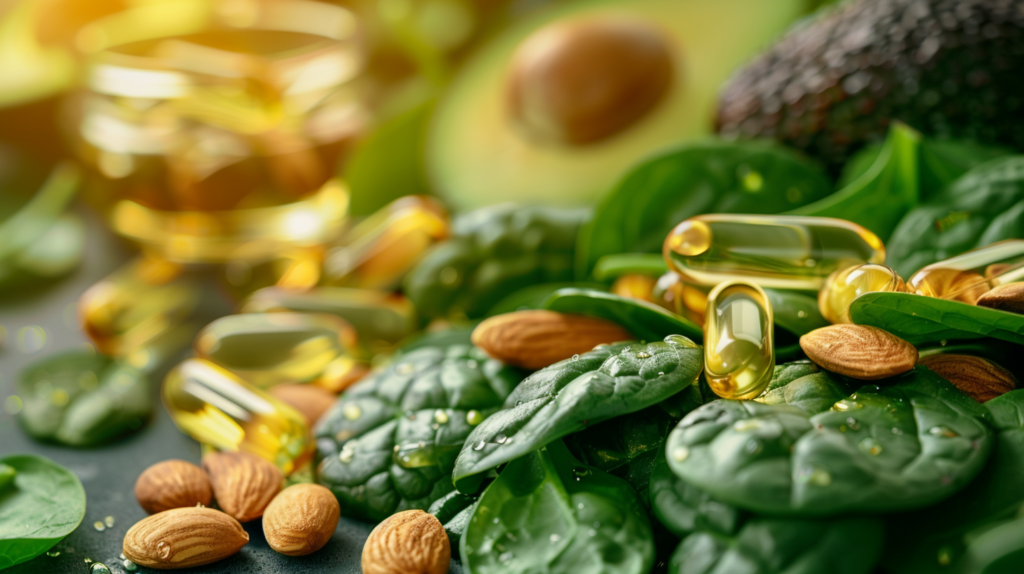
In addition to B vitamins that fuel our energy during workouts, vitamin E plays an essential role in supporting our body’s antioxidant defenses. As bodybuilders, we put our bodies through intense stress, which can lead to oxidative damage. Vitamin E helps combat this by neutralizing free radicals, promoting recovery, and reducing inflammation.
Here’s a quick overview of some key antioxidant sources of vitamin E and their benefits:
| Antioxidant Source | Vitamin E Benefits |
| Almonds | Supports muscle recovery and health |
| Spinach | Enhances immune function and endurance |
| Avocado | Aids in nutrient absorption |
| Sunflower seeds | Improves skin health and elasticity |
Including these vitamin E-rich foods in our diet not only provides us with essential nutrients but also strengthens our overall antioxidant support. This is critical for maintaining peak performance and ensuring our bodies can recover effectively. By prioritizing vitamin E in our nutrition plans, we can better support our training goals and embrace the liberation that comes from peak physical condition.
Vitamin A for Immune Function
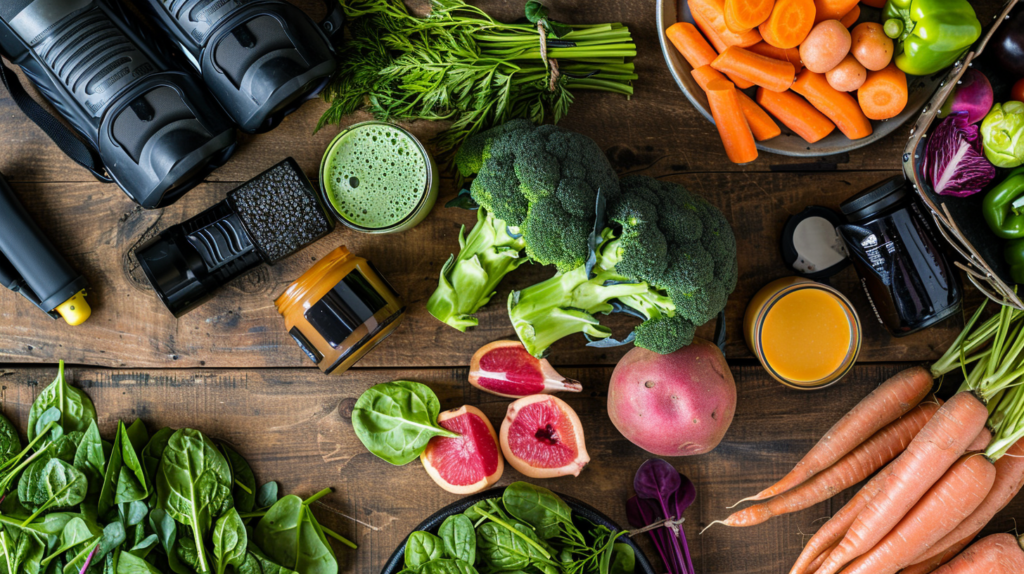
Vitamin A is crucial for supporting our immune function, helping us fend off illnesses and recover faster from intense training sessions. This powerful vitamin plays a critical role in maintaining the integrity of our skin and mucosal cells, which act as barriers against pathogens.
A robust immune system is essential for bodybuilders, as it allows us to stay on track with our training and avoid setbacks due to illness.
We can obtain vitamin A from various sources, primarily through animal products like liver, fish, and dairy, as well as from plant-based foods rich in beta-carotene, such as carrots, sweet potatoes, and leafy greens. Incorporating these vitamin sources into our diets guarantees we’re getting enough of this essential nutrient.
Research indicates that adequate vitamin A levels can enhance our immune response, allowing us to train harder and recover more efficiently. For bodybuilders, prioritizing our vitamin A intake not only boosts our immune function but also supports overall health.
Vitamin K and Bone Health
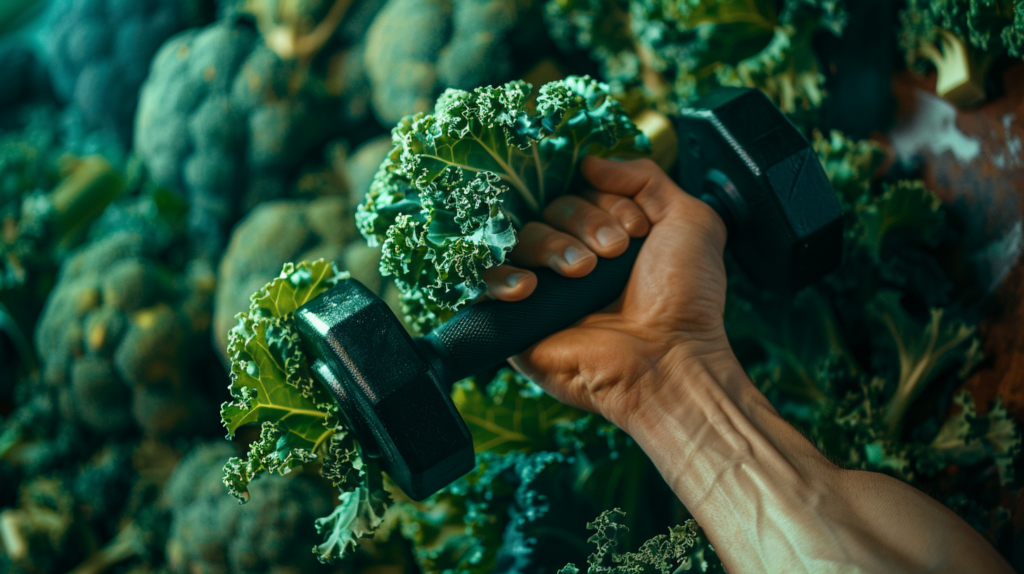
Strong bones are fundamental for bodybuilders, and vitamin K plays a significant role in maintaining their health and integrity. This vitamin is essential for the synthesis of osteocalcin, a protein that binds calcium to our bones, promoting strength and resilience. Without adequate vitamin K, we risk bone density loss, which can lead to injuries and hinder our progress in strength training.
To guarantee we’re getting enough vitamin K, we should include a variety of sources in our diets. Here’s a quick look at some key vitamin K sources, the risks of deficiency, and recommended daily intake:
| Vitamin K Sources | Vitamin K Deficiency Risks | Recommended Daily Intake |
| Leafy greens (kale, spinach) | Increased fracture risk | 90-120 mcg for adults |
| Broccoli and Brussels sprouts | Osteoporosis | |
| Fermented foods (natto) | Impaired bone mineralization | |
| Fish and meat | Cardiovascular issues | |
| Dairy products | Poor blood clotting |
How to Incorporate Vitamins in Diet
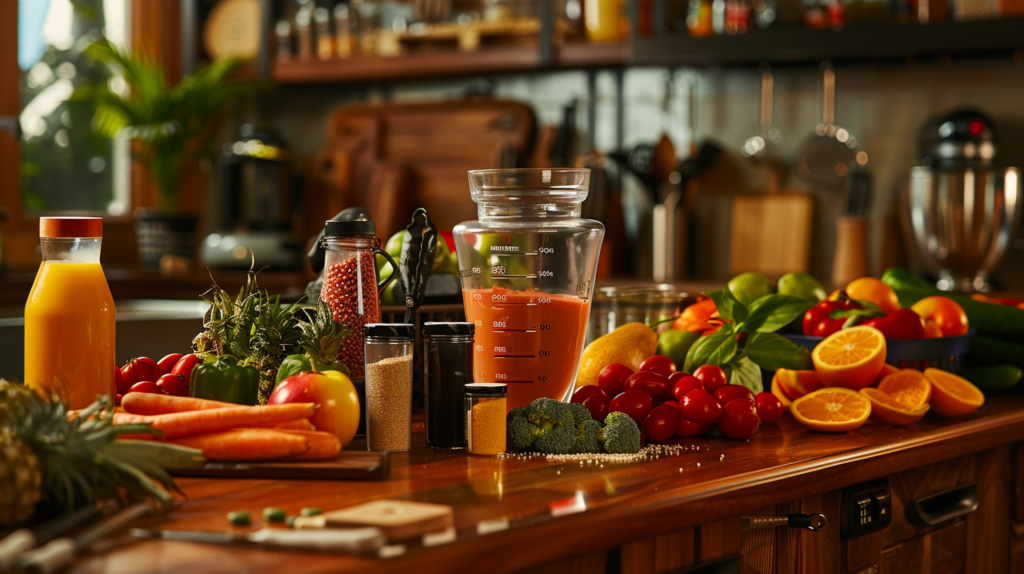
To effectively incorporate essential vitamins into our diet, we should focus on a balanced intake of whole foods rich in these nutrients, guaranteeing we meet our body’s unique needs for peak performance and recovery.
Understanding vitamin sources is important, as different foods provide varying amounts of critical vitamins.
We can enhance our vitamin intake by considering the following strategies:
- Prioritize whole foods: Incorporate fruits, vegetables, nuts, and seeds into each meal for a broad spectrum of vitamins.
- Plan meals around vitamin timing: Consume vitamin-rich foods around workouts to support energy levels and recovery.
- Diversify our diet: Include a colorful variety of foods to make certain we’re getting a full range of vitamins.
- Consider supplementation: If necessary, opt for high-quality vitamin supplements to fill any gaps in our nutrition.
Frequently Asked Questions
Can I Get Enough Vitamins From Food Alone?
Absolutely, we can get enough vitamins from whole foods and diverse dietary sources. By prioritizing a balanced diet rich in fruits, vegetables, and whole grains, we guarantee our bodies receive essential nutrients naturally and effectively.
Are Vitamin Supplements Necessary for Bodybuilders?
As we plunge into our fitness journey, we realize vitamin absorption can vary. While whole foods often suffice, strategic supplement timing might enhance our gains, ensuring we meet our nutritional needs for peak performance and recovery.
How Do I Know if I’m Vitamin Deficient?
To know if we’re vitamin deficient, we should identify symptoms and undergo health assessments. Regular check-ups and being aware of our body’s signals empower us to maintain ideal health and prevent deficiencies effectively.
What Are the Side Effects of Taking Too Many Vitamins?
When we consume excessive vitamins, we risk vitamin toxicity and supplement overdose. This can lead to nausea, headaches, and more serious health issues. We should always prioritize balanced nutrition and consult professionals for advice.
How Do Vitamins Interact With Other Supplements?
It is understood that vitamins can enhance supplement synergy, improving vitamin absorption. When we combine them wisely, we maximize their effectiveness, ensuring our bodies receive ideal nutrition. Careful interactions can lead to better overall health and performance.
Conclusion
Incorporating key vitamins into our nutrition plans is essential for maximizing our bodybuilding efforts and overall health.
By ensuring we get enough Vitamin D for muscle strength, Vitamin C for recovery, and the B vitamins for energy, we can fuel our bodies effectively.
Just like knights of old armed themselves for battle, we too must equip ourselves with the right nutrients.
Let’s stay vigilant about our vitamin intake and watch our progress soar as we reach our fitness goals.





